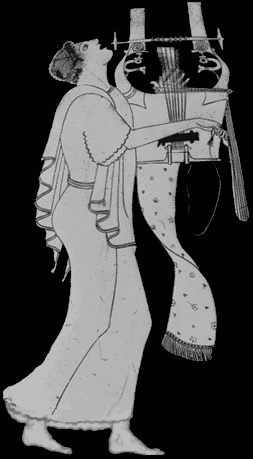Greek Theater
External Links:
Didaskalia:
Ancient Theatre Study--Very academic approach to Greek and Roman
drama; access to journal
Perseus at Tufts--Guide to online primary sources
in Greek and Roman civilization
Discussion L. 4--Oedipus Rex
1. Aristotle on Oedipus Rex—Aristotle
cites Oedipus Rex as an
example of how to form a tragedy, particularly in terms of tragic
recognition and reversal. Where does this first occur? How many times
does it occur?
2. This play could also be seen (esp. if you consider its sequel,
Antigone) as how to deal with
grief. How do different characters deal with grief? cf. lines 794, 945,
1374
3. What is Slater’s main point in his essay?
Group Discussion:
Examine the role of the chorus versus
that of the actor in Oedipus Rex.
How does meaning shift when the role of the chorus shifts in relation
to the actors? (cf. esp. p. 34/l. 720)?
Discussion L. 6--Group Discussion
Discuss these questions in groups, finding specific passages to
support your answers.
1. How does Medea represent herself to the chorus? What’s the role
of the chorus here? How does Medea’s interaction with the chorus
contrast with the way she talks to Jason? What is the significance of
these differences?
2. Who is the ‘tragic hero’ of this play? Is it Medea, whose desires
and actions form the plot of the play? Or is it Jason, who, in
Aristotelian terms, is brought to recognize his error in judgment and
with whose reversal of fortune the play culminates? What difference
does it make who the tragic hero is?
3. How does Medea’s status as a barbarian interact with her status as a
woman?

